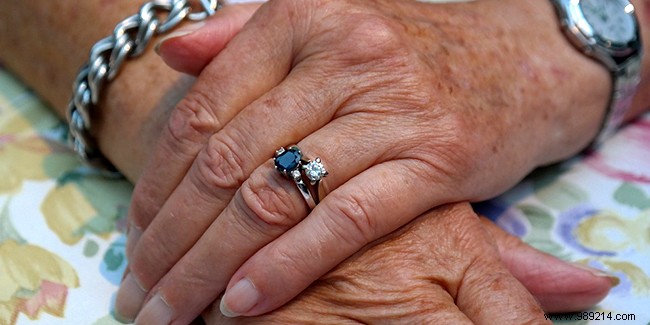
Generally, an elderly person who enters an Ehpad is there for a long time, or even stays in this specialized establishment until the end of his life. This is why it is normal and important for her to be able to personalize her new place of life as much as possible by bringing with her a few small pieces of furniture, personal documents or objects that she holds dear. Jewelery is one of those goods that very often have a value, in addition to financial, sentimental and major for residents in nursing homes.
Unfortunately, like everywhere else, jewellery, like other personal effects, can be subject to theft within these establishments, especially those of elderly people with Alzheimer's disease. What precautions should be taken to limit such harm? How to denounce this prejudice?
Upon entering an nursing home, residents or their legal representative must sign what is called a residence contract, a mandatory document for stays of more than 2 months. This contract includes in particular the definition of the care objectives of the establishment, the conditions of stay and reception, the financial participation of the resident, as well as the list of services offered (accommodation, catering, laundry, medical supervision, entertainment , etc.).
In parallel with this contract, a welcome booklet is given to the elderly which informs them of their rights and obligations. It contains in particular a charter of rights and freedoms, as well as the operating rules of the nursing home.
On the other hand, upon arrival, the establishment must offer the resident the possibility of depositing his valuable personal effects, including jewellery, in a dedicated safe. This deposit, made against the issuance of a certificate signed by both parties, is intended to effectively protect these goods from the risk of theft, a solution to be adopted in particular for the goods of elderly people with Alzheimer's disease who have lost their faculties of bearings and memory. An elderly person can however decide to keep their jewelry (wedding ring, watch, ring, etc.) with them.
In all cases, a detailed inventory of personal effects, and in particular of valuables, is carried out. It is the subject of a receipt given to the resident and kept by the nursing home in a special register. This inventory plays a major role in the event of theft.
The secure deposit of jewelry in nursing homes is the preferred solution because article L1113-1 of the public health code stipulates that these establishments are " fully responsible for the theft, loss or deterioration of objects placed in the hands of agents appointed for this purpose or of a public accountant by persons who are admitted or accommodated there" .
The civil liability of the establishment is indeed automatically engaged in the case of the theft of jewellery, for example, without the resident or his family having to prove that the theft is due to a fault on the part of the establishment. When the theft concerns jewelery that the elderly person kept with them, the civil liability of the establishment may also be engaged, but on the sole condition that there was a fault on their part or a lack of organization of the department responsible. of the deposit of goods.
The civil liability of the nursing home allows the injured resident to be able to claim compensation for his damage.
In the event of a dispute with his Ehpad regarding the resolution or compensation of the damage suffered, a resident, or his legal representative, particularly in the case of Alzheimer's patients, has different ways to try to find a solution and avoid conflicts. with management, without having to file a complaint with the police.
It is possible, for example, to approach the social life council of the establishment, whose role is to represent the users of nursing homes. On the other hand, created by a law of January 2, 2002, "the qualified person" also constitutes a remedy in the event of a dispute with an Ehpad after a theft of jewellery, for example. In these cases, this person plays a mediating role between the user and the establishment or service concerned. The qualified person can be seized by the resident himself or a member of his family. Their list is mentioned in the welcome booklet given by the establishment at the entrance of the resident.